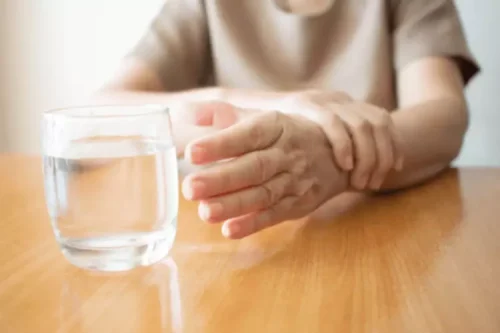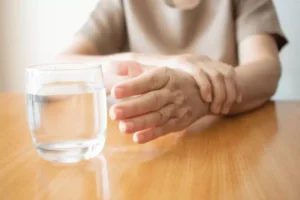- January 27, 2025
- Sober living
- No Comments
Yup, Booze Can Totally Change Your Body Odor

On the other hand, if you find yourself sweating the morning after you drink, this is likely a hangover symptom. A major hangover can actually result in a low-grade fever due to a blood sugar drop, dehydration, or even an immune response. Other factors, such as menopause or medication use, commonly cause hot flashes and night sweats.
Processed Foods: Addictive And Potentially Life Threatening
Alcohol has a direct impact on the body’s central nervous system, which plays a pivotal role in heat regulation. One of the primary effects of alcohol is its ability to cause peripheral vasodilation. This means alcohol causes the blood vessels close to the skin’s surface to widen. While this vasodilation leads to a temporary feeling of warmth as blood flow to the skin increases, it’s a deceptive sensation.

Mental Health Treatment Programs
People who drink before bed have more fragmented sleep and tend to awaken more during the night than those who don’t consume alcohol. Ideally, your room should be dark with low lighting, and you should have ice packs and a thermometer. It’s also a good idea to why does wine make me hot have to prepare nutritious food, such as soup or noodles before the withdrawal.
Is it normal to have body odor after drinking alcohol?
“About 75% of perimenopausal women report having night sweats,” says Dr. Ram. “The frequency typically peaks in the first few years following menopause and then declines over time.” “The body treats alcohol like a toxin because the liver can only metabolize about 12 ounces of beer an hour,” says substance abuse expert and clinical psychologist John Mayer, PhD.

Research has shown that alcohol use interrupts your sleep cycle, particularly REM sleep. If you’re dripping sweat even when there isn’t an obvious trigger, experts say that could be reason to consult a medical professional. Before you attempt to stop the sweat, though, experts say you should know when perspiration is normal versus when it might be an indicator of a health issue. Sweating can irritate the skin, especially if it’s left to dry on the body.

Are You Covered for Addiction
- On the other hand, if you find yourself sweating the morning after you drink, this is likely a hangover symptom.
- This accumulation of alcohol contributes to the many effects it has on the body — including sweating.
- A few drinks may cause your heart to accelerate, which further increases the chances of flushing and sweating.
When heavy drinkers abruptly stop drinking, their bodies go into shock – craving the depressant effects of alcohol. The relationship that binge drinkers have with alcohol is unhealthy. Alcohol affects the nervous system and can cause your blood vessels to tighten, which results in increased blood pressure. When Health Shots got in touch with Dr Jinendra Jain, Consultant Physician, Wockhardt Hospital, Mira Road, Mumbai, and asked why people often experience sweating or hot flashes after drinking alcohol. He promptly replied that it’s quite common as it’s an aftereffect of alcohol. Experiencing night sweats after drinking alcohol can be both uncomfortable and disruptive to a good night’s sleep.
If you or someone you love is experiencing these symptoms, you should seek medical attention immediately. You might also sweat after drinking due to having an intolerance to alcohol. Having an alcohol intolerance is a genetic condition where your body isn’t able to produce the enzymes it needs Sober living house to break down toxins in alcohol. The effects are similar to that of the medication Antabuse (disulfiram), which is often used to treat alcohol addiction.

How to stop alcohol night sweats
You can learn more about why alcohol can make your hyperhidrosis worse and cause your body to produce more sweat. For those who are unable to reduce their alcohol intake on their own, a medically supervised detox can be a crucial step. Alcohol intolerance is a condition characterized by an immediate, uncomfortable reaction to alcohol consumption. Unlike alcohol allergy, which is rare and involves the immune system, intolerance generally stems from a genetic inability to metabolize alcohol properly.
Prevention and Long-Term Management
BetterHelp offers affordable mental health care via phone, video, or live-chat. Alcohol intoxication impacts self-control, making you more impulsive. In a survey of college students who drank, 57% reported eating something they were “craving” after consumption. But the next day, that greasy meal they enjoyed can become a source of anxiety.
- Seek help from qualified professionals to embark on your recovery journey.
- People experiencing alcohol withdrawal relating to alcohol dependency should consider seeking urgent medical attention.
- “While alcohol is often referred to as a ‘depressant,’ it’s not really that simple,” Dr. Ram explains.
“Less than 3% of the population suffers from primary hyperhidrosis, and the cause is typically unknown. This isn’t a serious condition, but it can be embarrassing,” says Dr. Ram. “However, several medical conditions, some of which are potentially serious, can cause what’s called secondary hyperhidrosis.” “It really is a waiting game,” says Dr. Blyden-Taylor, adding that unfortunately, you can’t sweat out the alcohol to speed up the process.

 +91 92155 56156, 92159 08888,
+91 92155 56156, 92159 08888,  studymatrixhsr@gmail.com
studymatrixhsr@gmail.com 



